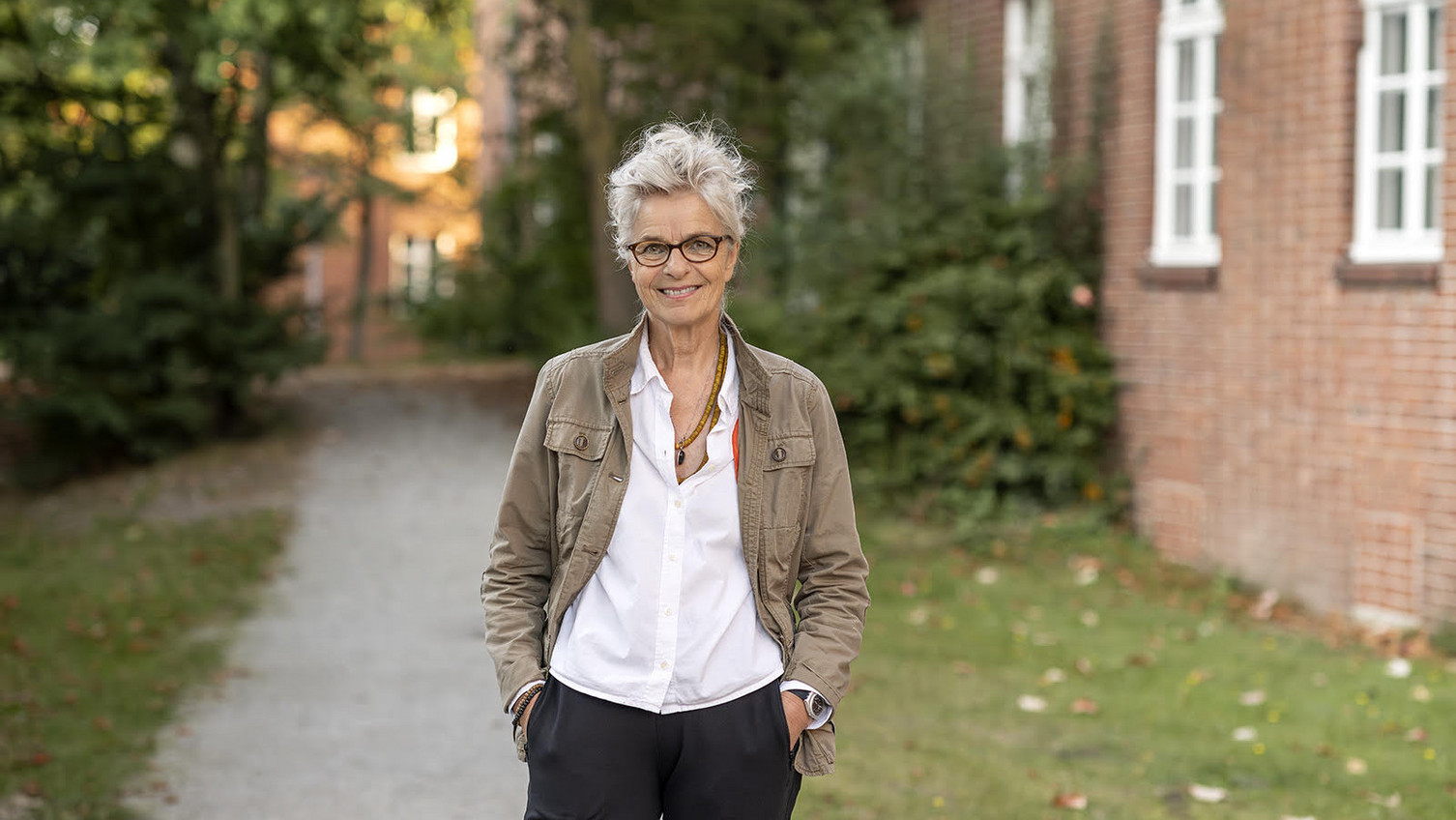Public Fellow 2024/25
Charlotte Wiedemann is an important voice in the German speaking public discourse and beyond. She is a freelance author and journalist and writes books, essays, and reports on international topics with a special focus on human rights, gender relations and cultures of memory. Her research has taken her to around thirty non-European countries like Iran, Pakistan, Egypt, Yemen, Libya, Saudi-Arabia, Lebanon, Turkey, Syria, Oman, Tunisia, Morocco, Uzbekistan, Nigeria, Swaziland, Cameroon, Senegal, Tanzania, Sudan, Mali on numerous times and as well to numerous countries in Southeast Asia.
After graduating from the university of Göttingen with degrees in social pedagogy, sociology and political sciences and from the Hamburg School of Journalism, she worked as a political correspondent between 1983 and 1999. She switched to foreign reporting and lived in Malaysia until 2003. During this time, she wrote for Die Zeit, Le Monde diplomatique, Blätter für deutsche und internationale Politik and Der Freitag primarily on human rights, social developments and interreligious relations throughout Southeast Asia. Back in Germany, she reported mainly on Muslim or Islamic societies. She has published books on Mali, Iran and the diverse roles of women in Muslim societies.
For her latest book, Den Schmerz der Anderen begreifen. Holocaust und Weltgedächtnis (2022) (Understanding the Pain of Others: The Holocaust and World Memory), she visited sites of colonial and fascist mass crimes from Lithuania to Indonesia. She advocates for an empathetic culture of remembrance and for including Palestinian voices into Germany's Holocaust memory culture. More recently, she has since written extensively on the triangular relationship between Germany, Israel and Palestine, on memory, and postcolonialism, and presents her approach and advocacy at international conferences.
EDUCATION
1979 MA Educational Science and Sociology, University of Göttingen
Hamburg School of Journalism (now: Henri-Nannen-Schule)
LATEST WORKS
Den Schmerz der Anderen begreifen. Holocaust und Weltgedächtnis. Berlin: Propyläen, 2022.
Der lange Abschied von der weißen Dominanz. München: dtv, 2019.
Der neue Iran. Eine Gesellschaft tritt aus dem Schatten. München: dtv, 2019.
Vom Versuch, nicht weiß zu schreiben. Oder: wie Journalismus unser Weltbild prägt. Köln: PapyRossa Verlag, 2018.
Mali oder das Ringen um Würde. Meine Reisen in einem verwundeten Land. München: Pantheon, 2014.
„Ihr wisst nichts über uns!“ Meine Reisen durch einen unbekannten Islam. Freiburg/Basel/Wien: Herder, 2012.
Die Hütte der kleinen Sätze. Politische Reportagen aus Südostasien. Berlin: Edition Freitag, 2004.
AWARDS
2017: Special Award Otto-Brenner-Stiftung
2013: Recognition award Bayreuth International Graduate School of African Studies
2008: Media Award Entwicklungspolitik (Main Award Category Print)
2007: Journalist Award “Weltbevölkerung”
1996: Emma-Journalist Award
ENGAGEMENT
2017–2019 Mentor of “Geh Deinen Weg”/Deutschlandstiftung Integration
2017–2018 Member of the Jury of the reportage prize of the N-Ost network
2011–2013 Member of the Advisory Board of the Bremer Übersee-Museum
Member of the Advisory Board of the Berlin Leibniz-Zentrum Moderner Orient (ZMO)


